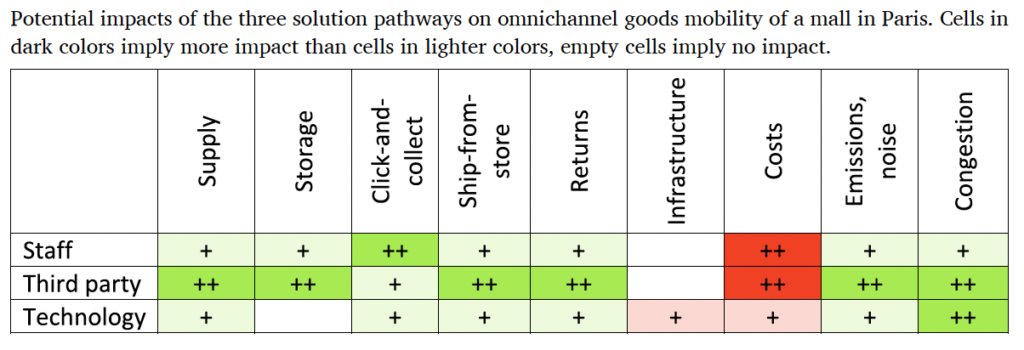Urban shopping malls depend not only on consumer mobility to operate and thrive but also on goods mobility. With the emergence of omnichannel retail, stores are now multifunctional hubs accommodating collection, delivery, and return of online purchases. As a consequence, goods transportation requirements for stores have intensified. This impacts the malls in which they are localized as well.
Scientific literature that covers goods mobility and malls is pretty limited. It has not yet explored the efficiency and sustainability of goods transportation to and from malls in the omnichannel era. To perform a state of practice and suggest improvements, researchers from the Logistics City Chair, University Gustave Eiffel, Paris, France, combine case study and exploratory research for the Beaugrenelle Mall in Paris. Beaugrenelle is operated by Apsys, measures 45,000 m2, and accommodates 99 stores, 14 restaurants, and a cinema.
The research demonstrates three operational issues. First, chaotic supply operations result in alternative practices that expose delivery workers to financial, security, and ergonomic risks. Second, patchy delivery practices are not aligned with regular supplies. Third, a lack of storage.
The researchers explore three solution pathways: i.e. introducing dedicated staff, engaging third parties, and implementing intelligent technology. In doing so, the researchers intend to provide elements for discussion for the mall operator, the retail tenants, their logistics service providers, and the city moving forward.

Source: Buldeo et al. (2023)
